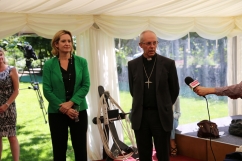Homelessness is even more widely spread than statistics suggests and "undoubtedly increasing", a committee of MPs said on Thursday.

A report by the communities and local government select committee urged ministers to back a bill to force local councils to provide up to two months' emergency accommodation for homeless people. The MPs said people without a home were too often given ineffectual advice and called on the government to impose a legal duty on councils to provide "meaningful support".
Figures from the government suggest local authorities accepted 14,780 applications for homelessness assistance between 1 January and 30 March 2015. This was a rise of nine per cent on the same quarter in 2015. But the MPs' report warned the statistics did not capture the full scale of homelessness.
The committee said there were many "hidden homeless" people who have not sought help or may be staying with friends.
The MPs went on to say they had "received too much evidence of councils and their staff treating homeless people in ways that are dismissive and at times discriminatory".
They called for an action plan to help the "hidden homeless" and urged the government to support Conservative MP Bob Blackman's private members bill to impose a stricter duty on local councils to support people on the streets.
Councils in England currently have a duty to find accomodation for "unintentionally homeless households" who are in the "priority need" category.
But government papers in the House of Commons library said: "There is no statutory duty to secure housing for homeless single people and couples without children, who are not deemed to be vulnerable for some reason."
Committee chairman Clive Betts said: "No-one should be homeless in Britain today, but the reality is that more and more people find themselves on the streets, in night shelters or going from sofa to sofa to keep a roof over their heads."
Nick Forbes, a vice-chairman at the Local Government Association (LGA) said "councils cannot tackle this challenge alone".
He said that councils needed to given more funding and powers to tackle the issue.
















